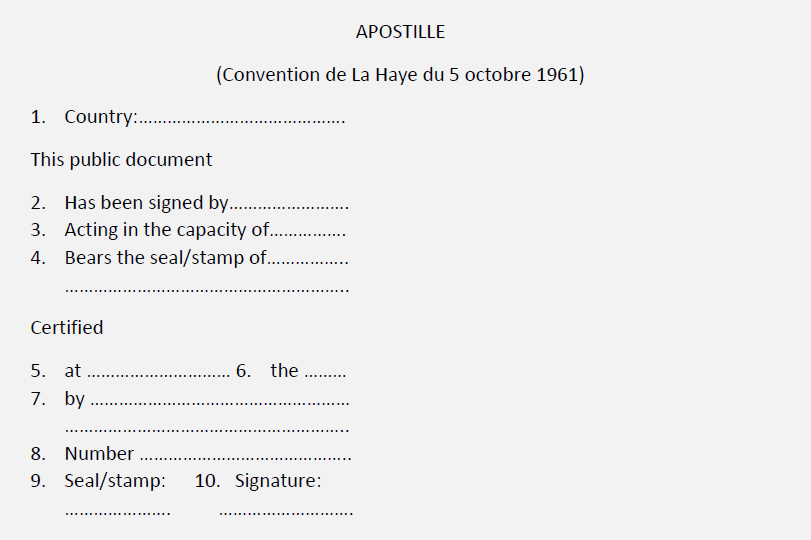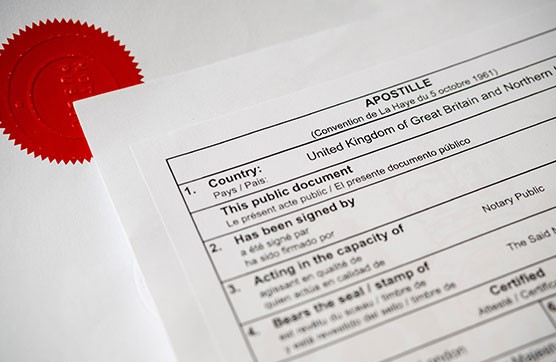Sometimes, it is required to legalise a Sworn Translation internationally through the “Apostille of The Hague,” a special seal that certifies the authenticity and legal effectiveness of a Sworn Translation in all the countries that are signatories to the Hague Convention.
Origin of the Apostille of the Hague
The origin of the Apostille of The Hague dates back to the 12th Convention of Private International Law held in The Hague on October 5, 1961.
Through the Apostille, all the countries that are signatories to the Convention recognise the legal effectiveness of a public document issued in another country signatory of the same Convention.
This eliminates the need for diplomatic and consular legalization procedures and replaces them with a much simpler legalisation process: the Apostille of The Hague.
What is the Apostille of the Hague and when is it needed?
The Apostille of The Hague (or simply apostille, also in French: apostille, “note” or “annotation”) is a simplified method of document legalisation used to verify the authenticity in the field of private international law. Physically, it consists of a sheet that is attached (either on the back or as an additional page) to the documents, which the competent authority affixes to a copy of the public document.
Only public documents need to be apostilled before being translated, in order to have legal effect in another country. The Sworn Translation is the final step, as the Apostille also needs to be translated.

In which countries is the Apostille of the Hague valid?
The countries where the Apostille is valid are those listed in the Hague Convention, meaning they are members of it.
What if my country is not part of the Hague Convention? Documents issued in countries not included in the Hague Convention must be legalised through diplomatic or consular channels.
Where can I obtain the Apostille in Spain?
- Administrative, judicial, and Civil Registry public documents are apostilled at the Citizen Services Office, Ministry of Justice Delegations (Territorial Management), and the Clerk Offices of the Superior Courts of Justice. However, please note that many administrative documents require prior signature recognition.
- Notarial or private documents with notarised signatures are apostilled at the Societies of Notaries.
- Judicial documents from the National Court (Audiencia Nacional) and the Supreme Court are apostilled by the Clerks of said courts.

Recent Comments